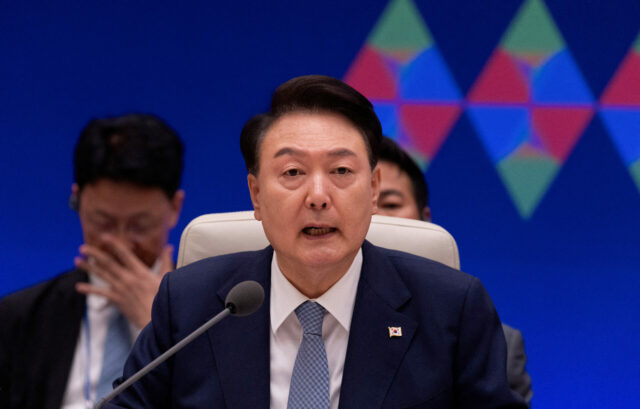An online petition calling for the impeachment of South Korean President Yoon Suk Yeol has gained significant traction. However, it is facing unexpected hurdles due to overwhelming public response. National Assembly Speaker Woo Won-shik has acknowledged these technical issues and promised a swift resolution to ensure citizens can exercise their constitutional rights.
Petition to oust South Korean president gains momentum
Since its launch on June 20, the petition has remarkably garnered over 811,000 signatures on the National Assembly’s website. Supporters argue Yoon is unfit for office, citing various concerns including alleged corruption, escalating tensions with North Korea, and mishandling of Japan’s Fukushima water release. (https://radiomusical.com/)
As a result of this unprecedented surge in traffic, many users have experienced severe delays, with some waiting up to four hours to access the site. At peak times, error messages indicated that more than 30,000 people were queuing to sign the petition.
According to South Korean law, any petition surpassing 50,000 signatures must be assigned to a parliamentary committee for review. Nevertheless, despite holding a majority, the opposition Democratic Party appears hesitant to convert the petition into a formal impeachment bill.
Yoon has faced consistently low approval ratings
It’s worth noting that Yoon’s presidency has been characterized by consistently low approval ratings since he took office in 2022. Recent polls show his support hovering around a mere 25% since April, further fuelling the impeachment movement.
For an impeachment to proceed, it requires a two-thirds majority in parliament. Subsequently, the Constitutional Court would deliberate on the motion to determine whether to remove or reinstate the president.
South Korea has a history of presidential impeachments
Interestingly, South Korea has a history of presidential impeachments, with two previous cases: Roh Moo-hyun in 2004 (later reinstated) and Park Geun-hye in 2017 (removed from office).
As this political drama unfolds, the technical difficulties faced by the petition platform underscore the intense public interest in the controversy. Meanwhile, the presidential office has yet to comment on the matter, leaving observers to speculate on the potential implications for Yoon’s administration and South Korean politics at large.
With inputs from Reuters
Traveller, bibliophile and wordsmith with a yen for international relations. A journalist and budding author of short fiction, life is a daily struggle to uncover the latest breaking story while attempting to be Hemingway in the self-same time. Focussed especially on Europe and West Asia, discussing Brexit, the Iran crisis and all matters related is a passion that endures to this day. Believes firmly that life without the written word is a life best not lived. That’s me, Ashwin Ahmad.





